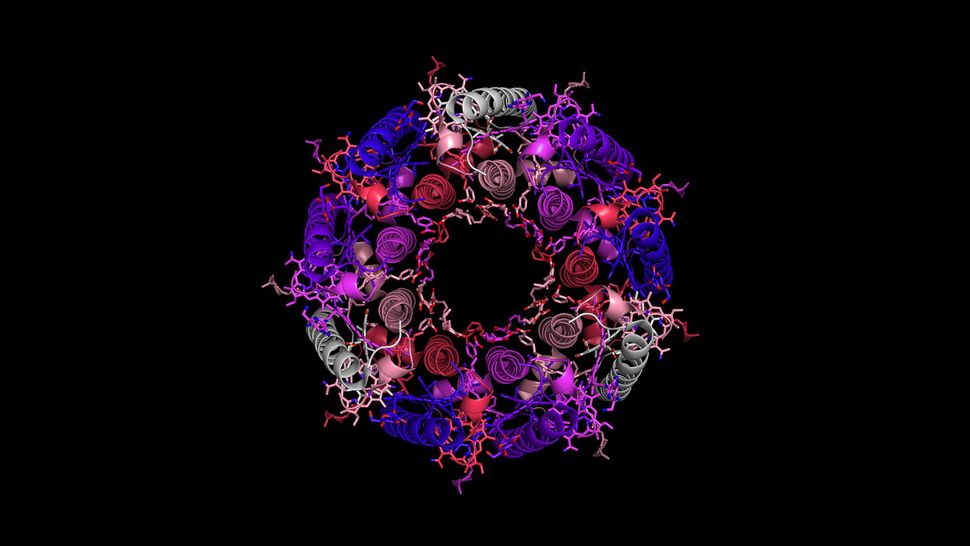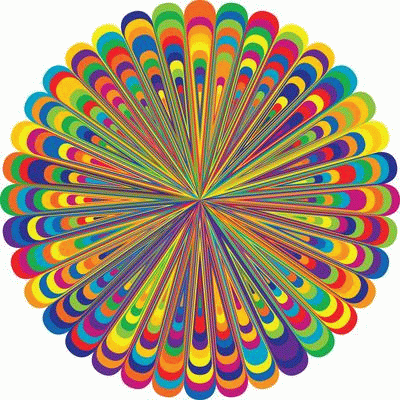Science
Related: About this forum'Informational simplicity' may explain why nature favors symmetry
By Cameron Duke published about 23 hours ago
Life favors simple structures over complex ones.

Molecular machinery, like this light-harvesting complex from a bacterium, is often strikingly symmetrical. (Image credit: Iain Johnston)
In biology, symmetry is typically the rule rather than the exception. Our bodies have left and right halves, starfish radiate from a central point and even trees, though not largely symmetrical, still produce symmetrical flowers. In fact, asymmetry in biology seems quite rare by comparison.
Does this mean that evolution has a preference for symmetry? In a new study, an international group of researchers, led by Iain Johnston, a professor in the Department of Mathematics at the University of Bergen in Norway, says it does.
Although symmetrical structures represent only a small fraction of possible forms — in geometry, at least — symmetry pops up everywhere in living organisms. It's not just a body-plan phenomenon, either. Proteins, the molecular machinery within a body, are largely symmetrical as well, often being composed of a series of repeating, modular parts. Repeating structures are often seen in animals, too; think of centipedes, with their repeating body segments. The reason for this apparent "preference" is not driven by aesthetics. Instead, according to the researchers, it comes down to simplicity.
"It can be tempting to assume that symmetry and modularity arise from natural selection," Johnston and his co-authors wrote in the new study. Natural selection can cause beneficial traits to become more common because those traits help survival. However, natural selection can only make a beneficial trait more common or do away with a harmful one; it can't force brand-new ones to appear.
More:
https://www.livescience.com/why-symmetry-common-in-biology?utm_source=notification
Goonch
(3,900 posts)
I_UndergroundPanther
(13,056 posts)I would love to make your animation into a rainbow 3d stained glass sculpture,
or a multicolored mirror ball.
Goonch
(3,900 posts)
I_UndergroundPanther
(13,056 posts)by using bright intense but not dark colored glass made into a faceted ball like this one.Then make another smaller
ball of iridescent clear faceted glass.In that put a bright rgb led lightbulb inside.
Than hook the clear glass ball up to a motor inside and have it spin inside the colorful glass ball that remains still.
or both balls could spin in opposite directions
Whether it captures it exactly or not it would be hella beautiful.